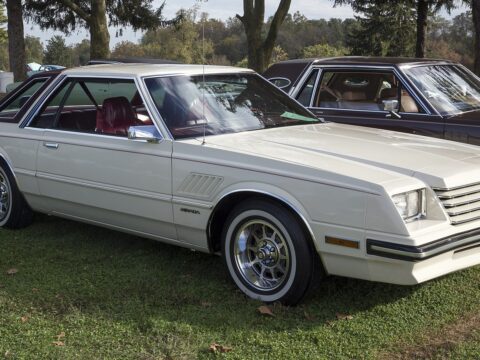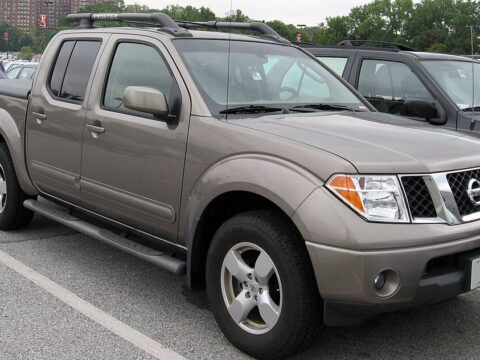Tackling car repairs on your own can seem like a great way to save money, but some fixes are better left to the pros. Attempting certain DIY car repairs might seem like a quick solution, but they can end up costing you more in the long run. Here are 25 car fixes that could do more harm than good if not handled with the right expertise.
Contents
Transmission Repair
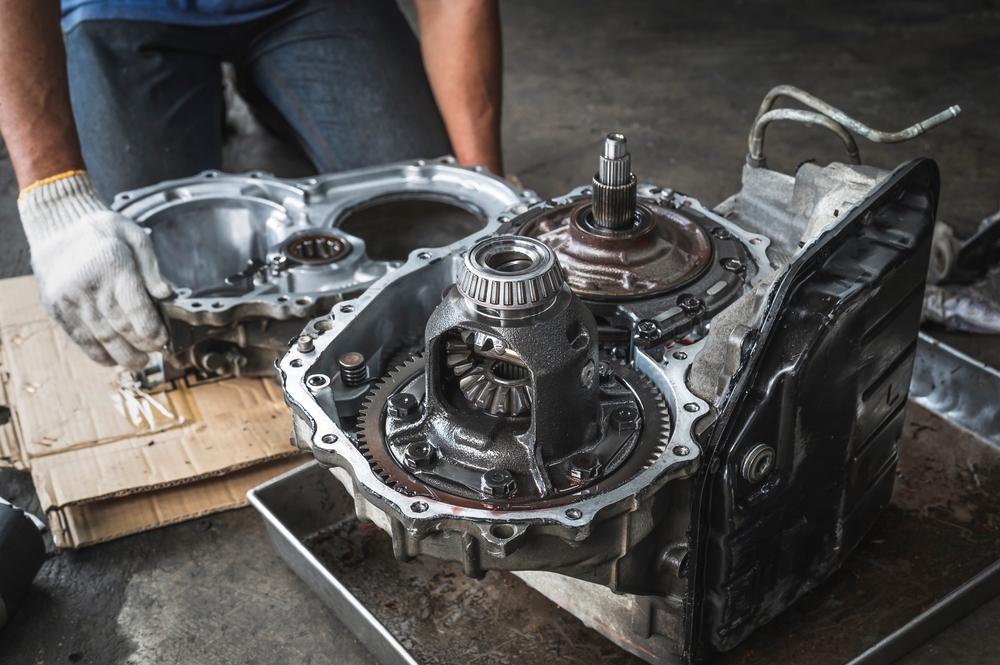
Attempting to repair a transmission on your own can be a costly mistake. The transmission is a complex system that requires specialized tools and expertise to disassemble, diagnose, and repair. Even a small error in the process can lead to significant damage, causing the vehicle to be undrivable. Professional transmission repair involves precise adjustments and the use of specific fluids, which, if not done correctly, can lead to further complications and potentially a complete transmission replacement, which is far more expensive.
Engine Timing Belt Replacement
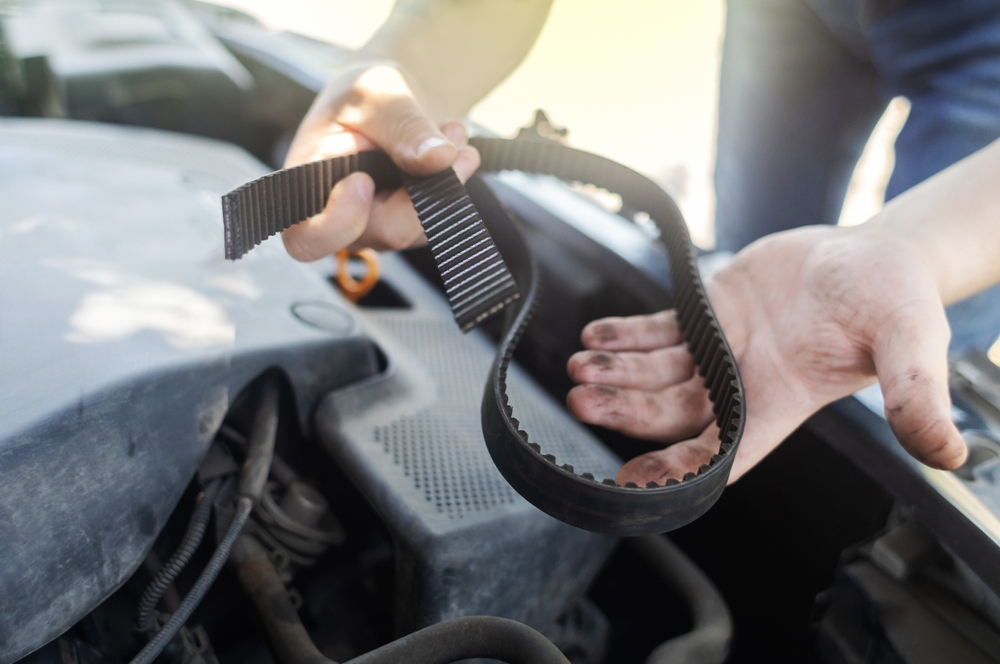
The timing belt is a critical component that keeps your engine’s camshaft and crankshaft in sync. Replacing it requires precise alignment; even a slight misstep can result in engine misfires or catastrophic engine damage. DIY attempts to replace the timing belt can easily go wrong, leading to bent valves or damaged pistons, which would require extensive engine repair or replacement. This is a job best left to professionals who have the necessary tools and expertise to ensure it’s done right.
Brake System Overhaul
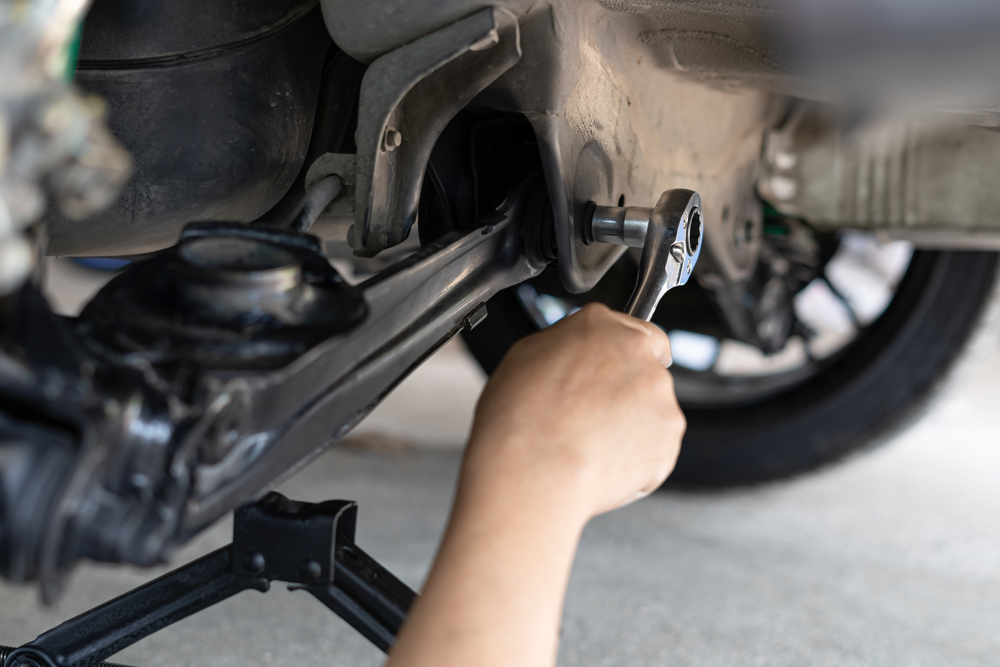
Overhauling the brake system involves replacing pads, rotors, calipers, and sometimes even the brake lines. This job requires a deep understanding of how the braking system works, as well as the ability to properly bleed the brake lines to avoid air pockets, which can cause brake failure. Mistakes during a brake system overhaul can result in poor braking performance or complete brake failure, putting you and others on the road at serious risk.
Airbag Replacement
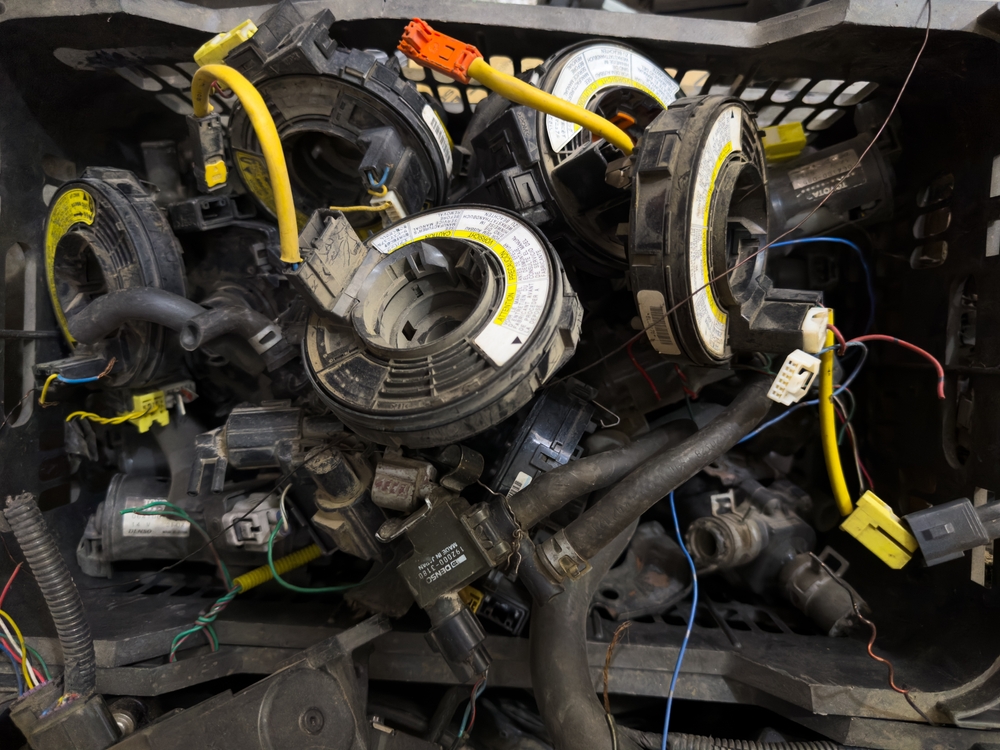
Airbags are crucial safety components that should never be tampered with by an untrained individual. Replacing an airbag involves working with the vehicle’s electrical system and handling potentially dangerous components. A DIY airbag replacement could result in the airbag deploying accidentally or not deploying at all in the event of a collision. Professionals have the knowledge to safely replace airbags and ensure that they are correctly integrated into the vehicle’s safety systems.
Fuel Injector Cleaning
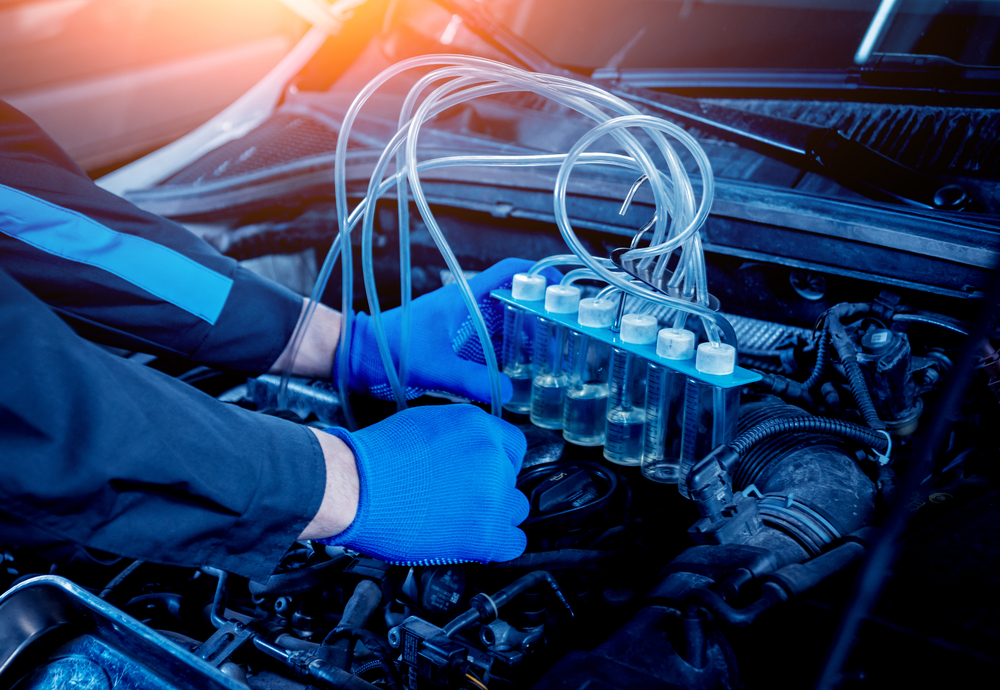
Fuel injectors are delicate components that require careful handling. DIY cleaning attempts often involve using harsh chemicals or incorrect methods that can damage the injectors or lead to improper fuel delivery. This can cause engine misfires, reduced fuel efficiency, or even engine damage. Proper cleaning requires specific equipment and expertise, making it a task best left to professionals who can ensure the injectors are cleaned without causing harm to your engine.
Electrical Wiring Repairs
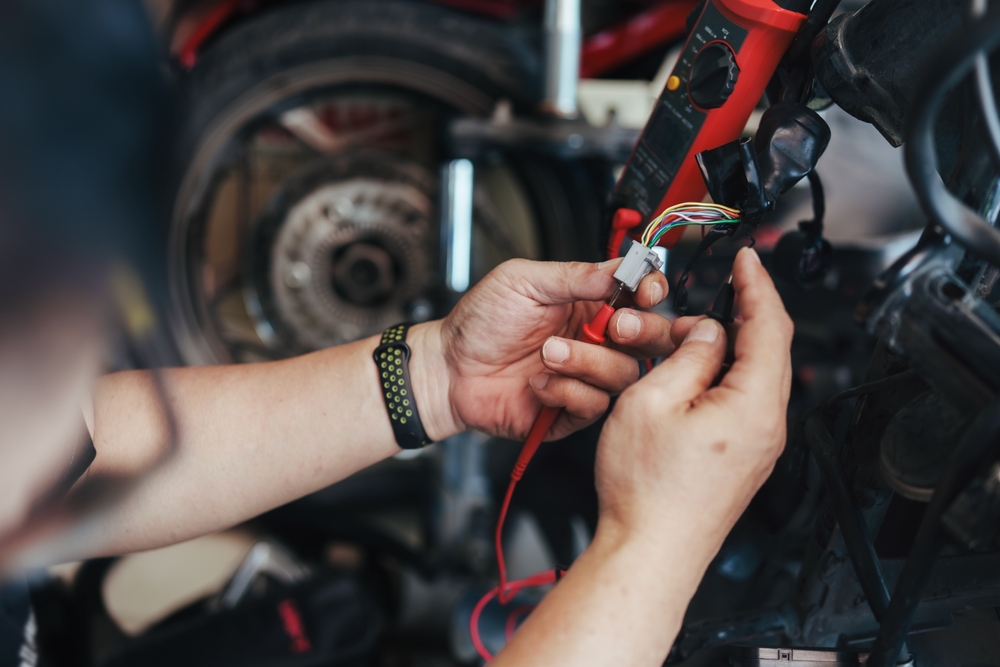
The electrical system in modern vehicles is complex and sensitive. Attempting to repair or modify the wiring without proper knowledge can lead to shorts, blown fuses, or even fires. DIY electrical repairs often involve cutting, splicing, or reconnecting wires, which, if done incorrectly, can cause significant damage to other components and be very costly to fix. Professional electricians have the tools and expertise to handle wiring repairs safely and effectively.
Suspension System Repairs
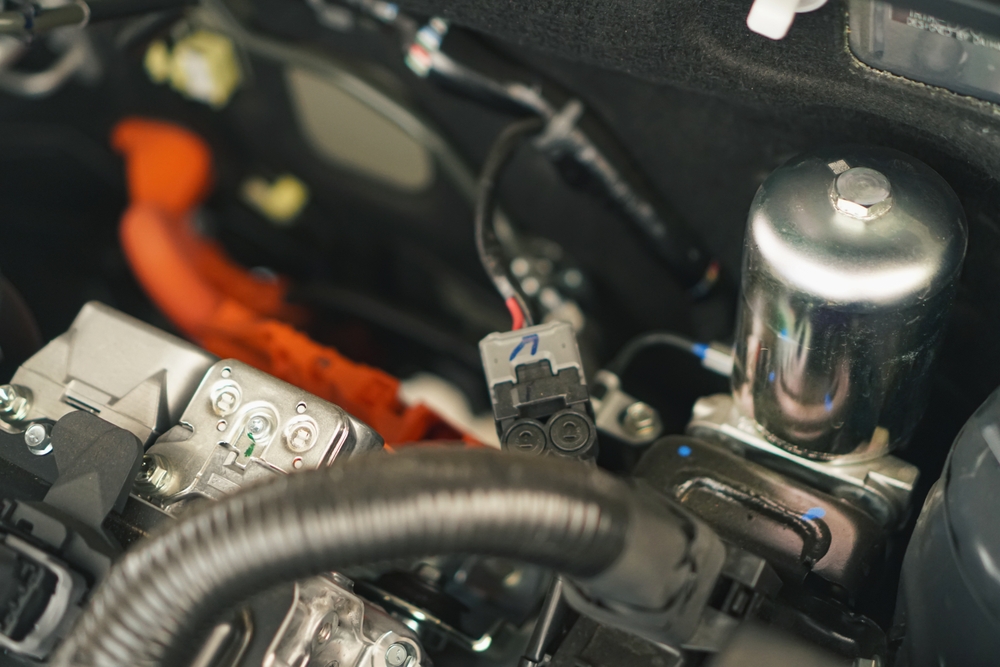
The suspension system is essential for a smooth and safe ride, and repairing it involves dealing with components that are under high tension, such as springs and struts. DIY suspension repairs can lead to improper alignment, uneven tire wear, or even the risk of components failing while driving. Professionals have the tools to safely compress springs, align the system, and ensure all components are working in harmony, preventing further damage or safety risks.
Replacing the Head Gasket
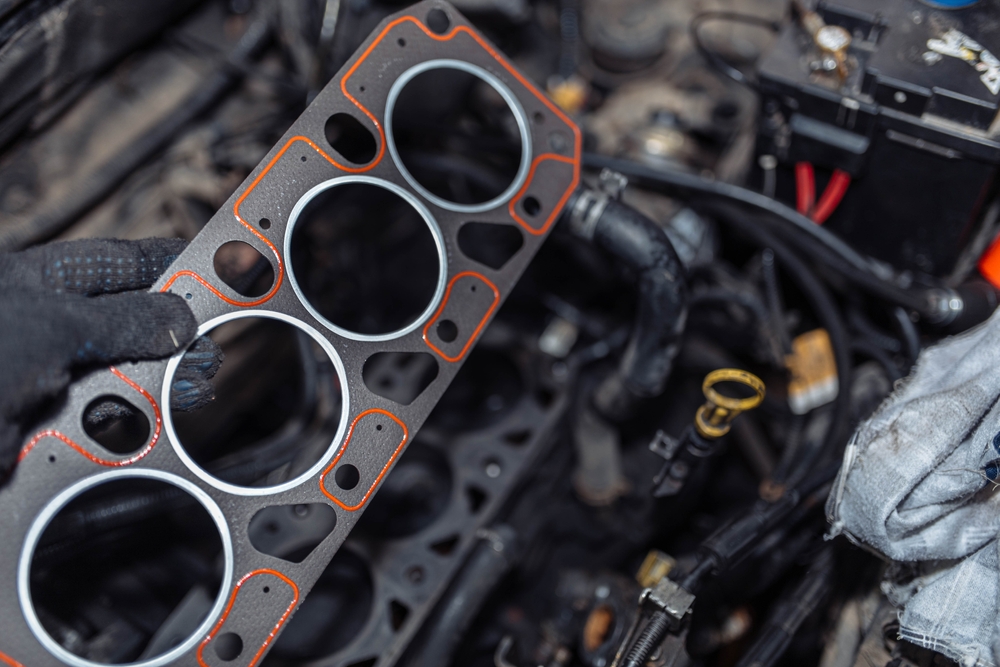
The head gasket seals the engine block and cylinder head, preventing oil and coolant from mixing. Replacing it is a complex task that requires removing the engine’s top half, which involves precise torque specifications and an understanding of engine timing. A mistake in replacing the head gasket can lead to leaks, engine overheating, or even complete engine failure, turning what seems like a simple fix into a costly repair.
Fixing Exhaust Leaks
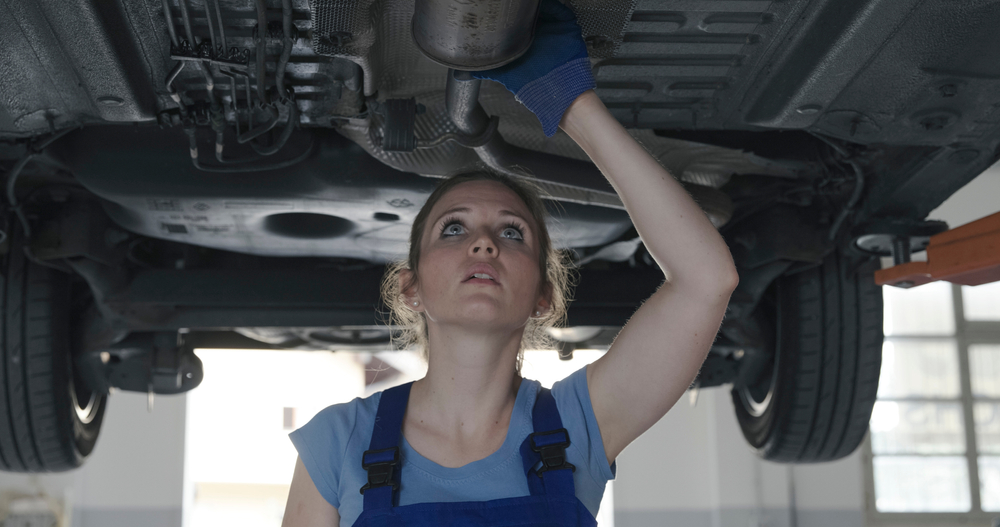
Exhaust leaks can lead to increased emissions, reduced engine performance, and even hazardous fumes entering the cabin. Fixing an exhaust leak requires cutting, welding, or replacing parts of the exhaust system, which can be difficult to do correctly without the right tools and expertise. A poorly executed repair can result in further leaks, noise, or damage to the catalytic converter, making it a job better suited for professionals.
Radiator Replacement
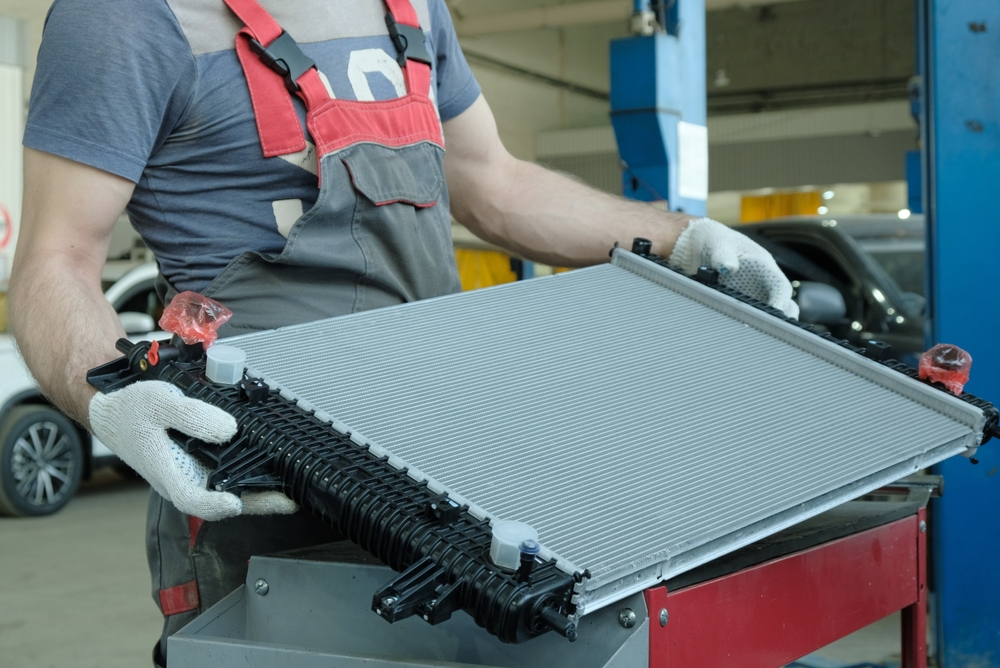
Replacing a radiator involves draining and refilling the cooling system, which must be done carefully to avoid air pockets that can cause engine overheating. Additionally, radiators are often connected to other critical components, like the transmission cooler, making the replacement process even more complex. A DIY radiator replacement that goes wrong can lead to coolant leaks, overheating, or damage to the transmission, all of which can be expensive to repair.
Wheel Alignment
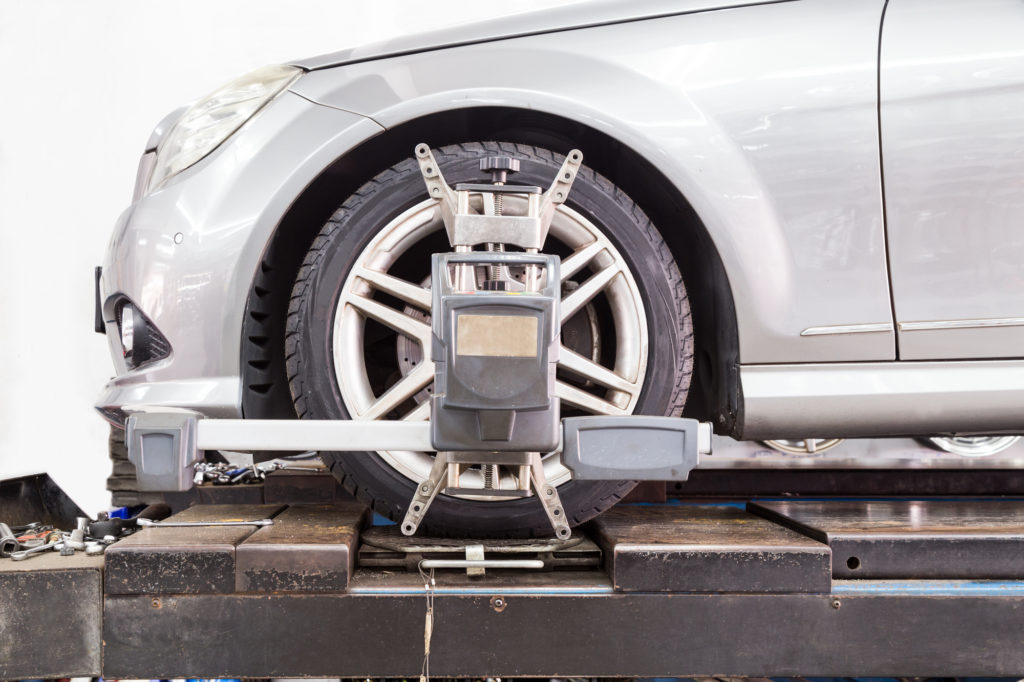
Proper wheel alignment is crucial for even tire wear, good handling, and overall vehicle safety. DIY alignment attempts often lack the precision required to achieve the correct angles, leading to uneven tire wear, pulling to one side, or even damage to suspension components. Professional alignment uses specialized equipment to ensure that all four wheels are perfectly aligned according to the manufacturer’s specifications, preventing unnecessary wear and costly repairs down the line.
Air Conditioning Repair
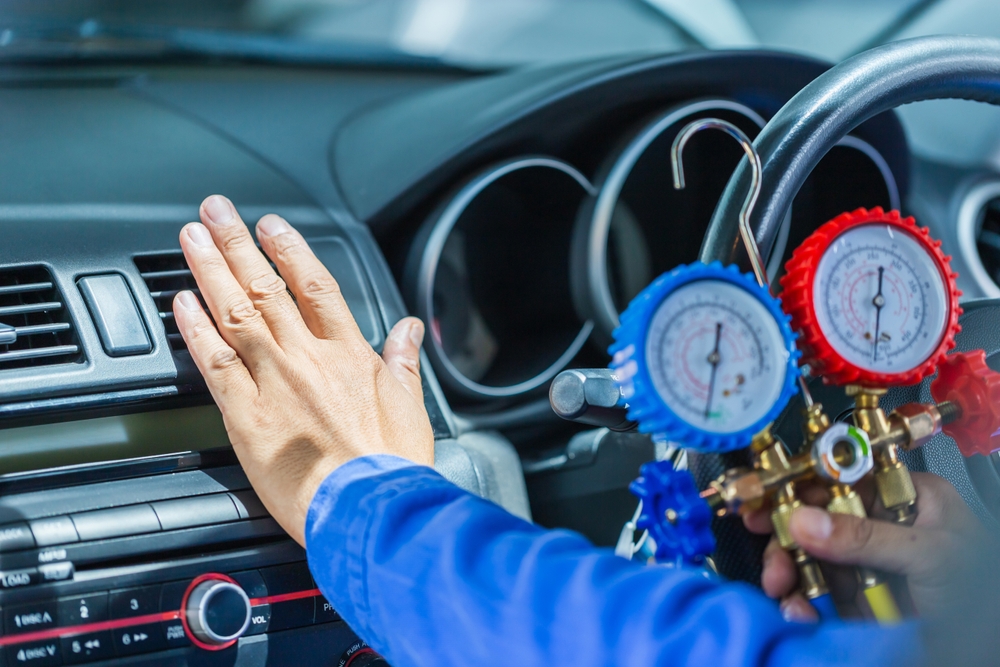
Air conditioning systems in cars are complicated and require a deep understanding of refrigeration principles. DIY attempts to repair or recharge an air conditioning system can result in overcharging, leaks, or damage to the compressor. Improper handling of refrigerants can also be harmful to the environment and illegal in some areas. Professional mechanics have the tools and knowledge to safely diagnose and repair air conditioning issues, ensuring your system runs efficiently and without causing further damage.
Fuel Pump Replacement
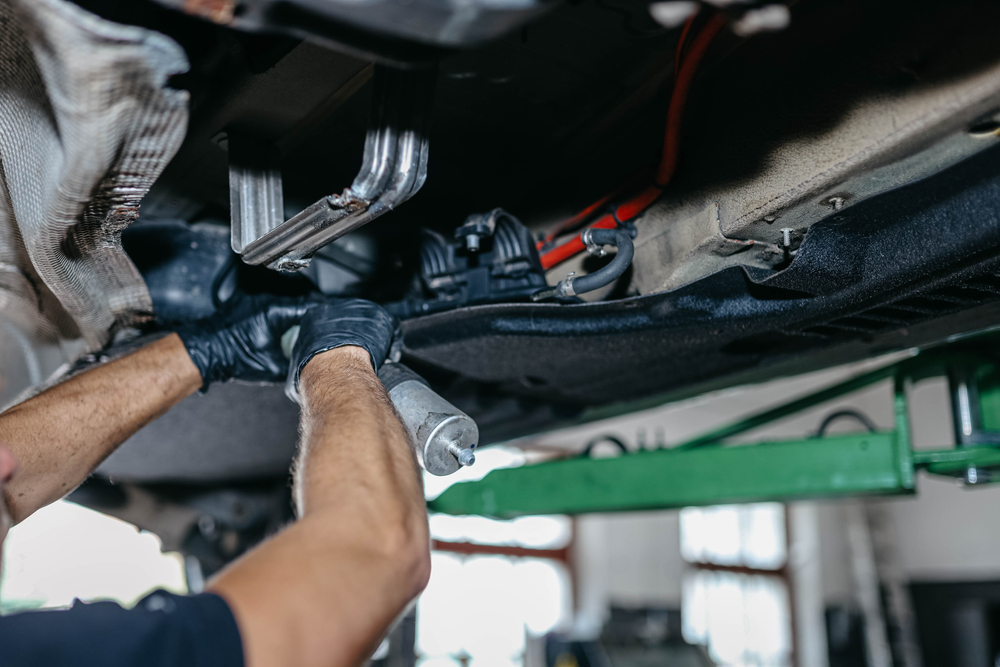
Replacing a fuel pump involves accessing the fuel tank, which can be dangerous due to the risk of fire or explosion if not handled correctly. Additionally, improper installation can lead to fuel leaks, pressure issues, or even engine damage. DIY attempts to replace a fuel pump often result in incomplete repairs or additional damage, making it a costly mistake. Professionals have the experience and safety measures in place to replace fuel pumps correctly and safely.
Replacing the Catalytic Converter
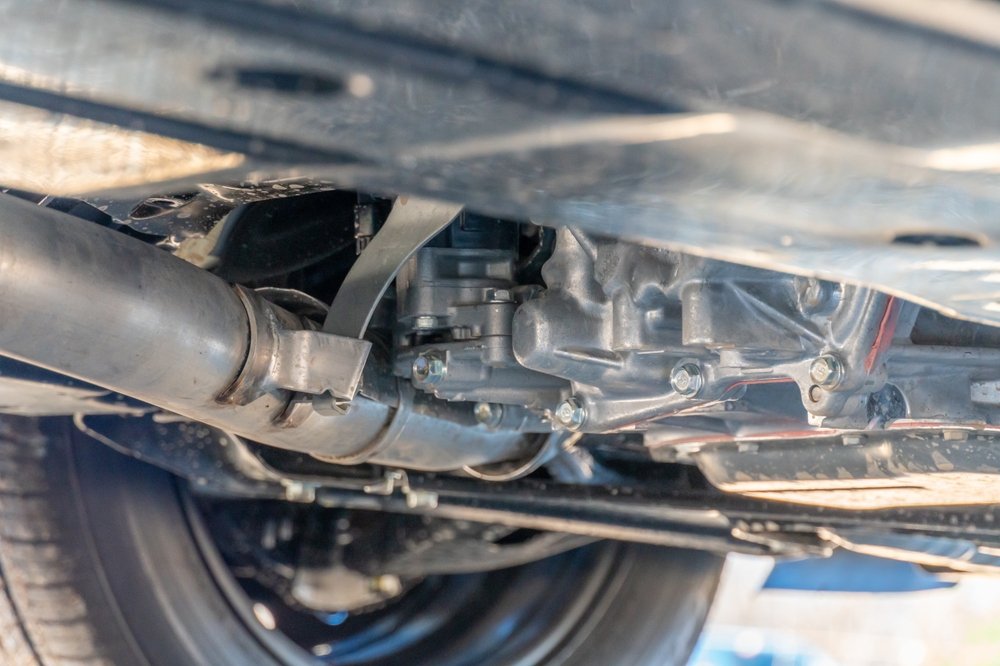
The catalytic converter is an essential component for reducing emissions, and replacing it involves cutting and welding parts of the exhaust system. DIY replacements often lead to improper fitment, leaks, or damage to surrounding components. Catalytic converters are also expensive, and a mistake during replacement can result in the need for a new one, doubling your costs. Professional mechanics ensure that the replacement is done correctly, maintaining your vehicle’s performance and compliance with emissions regulations.
Clutch Replacement
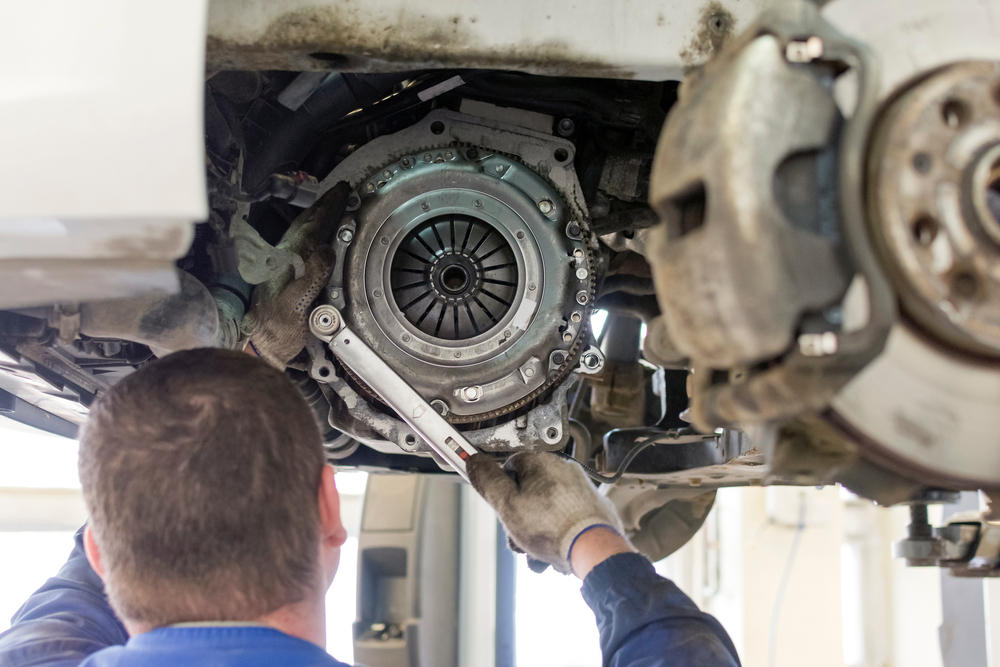
Replacing a clutch is a labor-intensive job that requires removing the transmission from the vehicle. The process involves precise alignment of components, and any mistake can lead to issues with shifting, clutch slippage, or even damage to the transmission. DIY clutch replacements often go wrong due to the complexity of the job and the need for specialized tools. This is a repair that can be expensive to fix if not done correctly, making it worth the investment to have a professional handle it.
Fixing Leaks in the Power Steering System
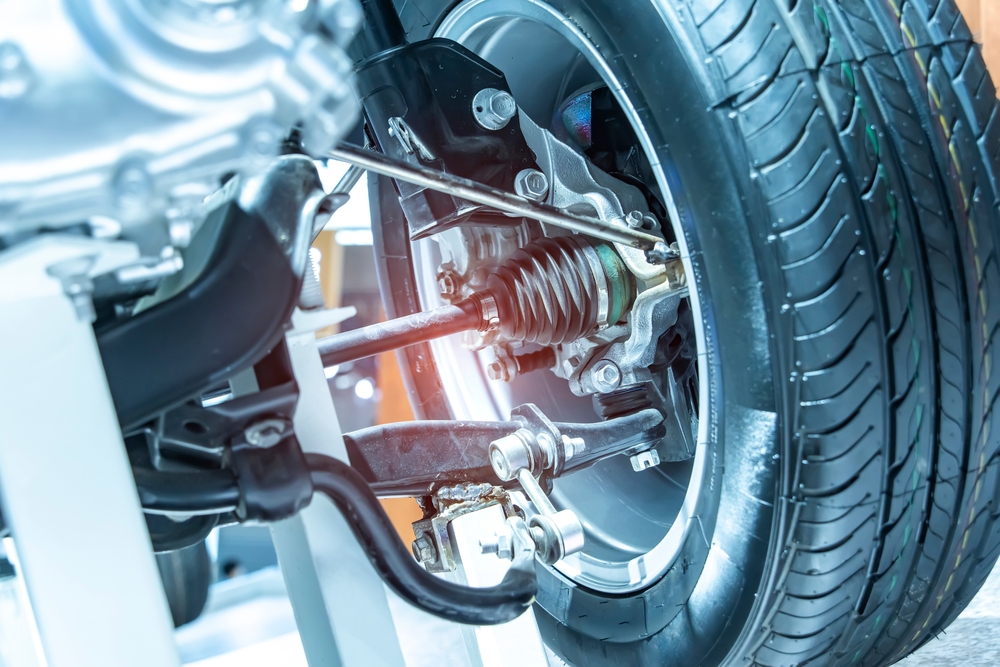
Power steering systems operate under high pressure, and fixing leaks requires handling hydraulic lines and components. DIY repairs can lead to improper sealing, resulting in persistent leaks, loss of steering assist, or damage to the power steering pump. These issues can be costly to repair and pose a serious safety risk. Professional mechanics have the tools to accurately diagnose and fix leaks, ensuring the system operates correctly without causing further damage.
Resetting the Check Engine Light
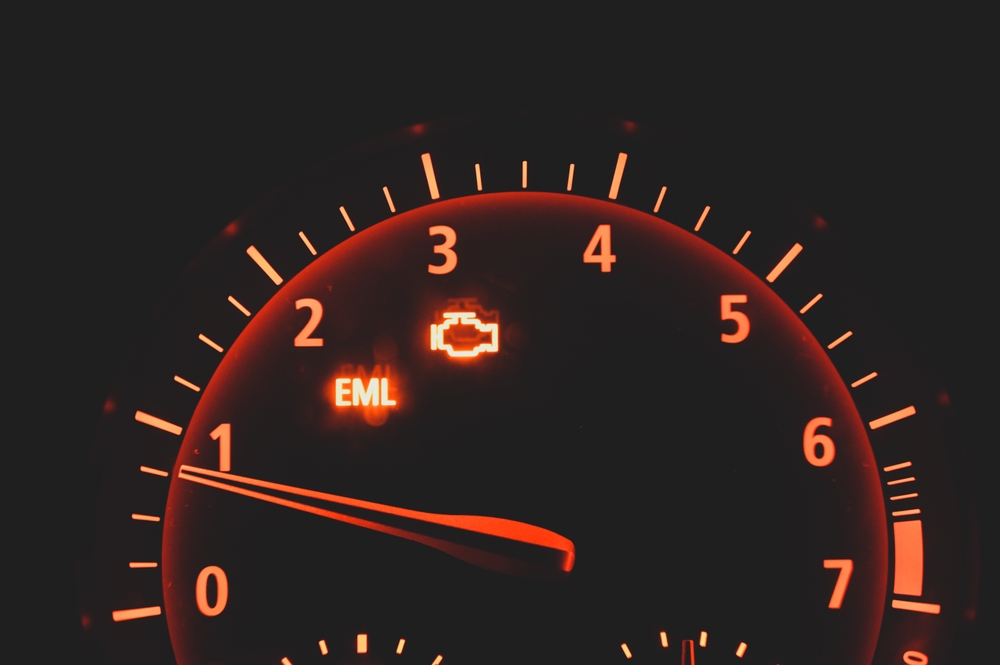
The check engine light is an indicator of various potential issues in your vehicle. Simply resetting it without addressing the underlying problem can lead to further damage, as the issue may worsen over time. DIY attempts to reset the light without proper diagnostic tools can also lead to incorrect or incomplete resets, masking serious problems. A professional diagnosis ensures that the real issue is identified and fixed, preventing costly repairs down the line.
Windshield Replacement
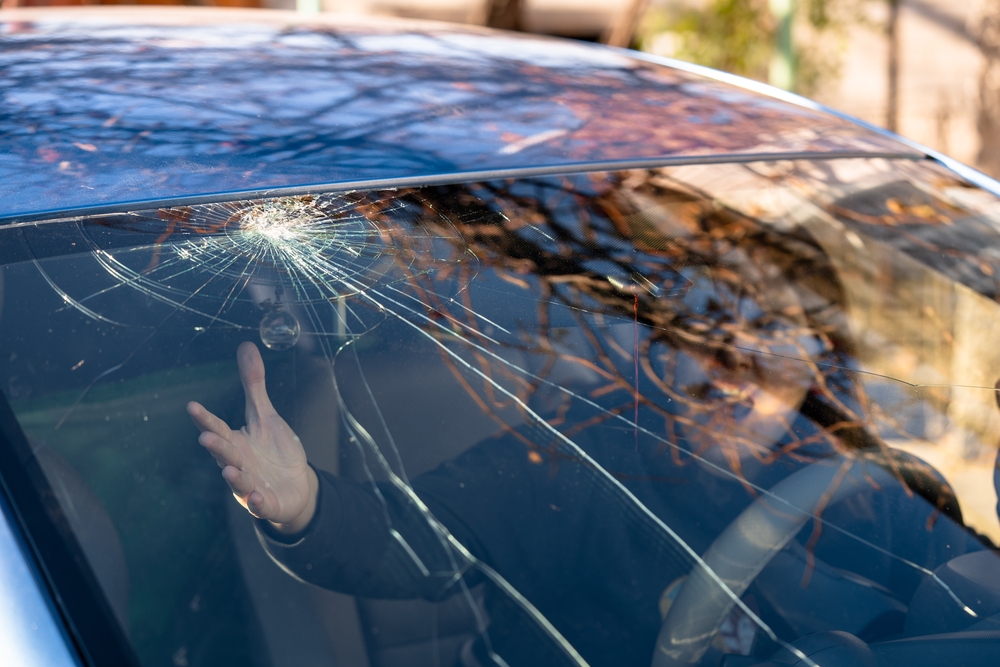
Replacing a windshield may seem straightforward, but it requires precise fitting to ensure the integrity of the vehicle’s structure. A poorly installed windshield can lead to leaks, wind noise, or even failure to protect occupants in the event of a rollover accident. DIY replacements often result in improper sealing or alignment, compromising safety and requiring a costly professional fix. Professional installers have the tools and expertise to replace windshields correctly, maintaining your vehicle’s safety standards.
Timing Chain Replacement
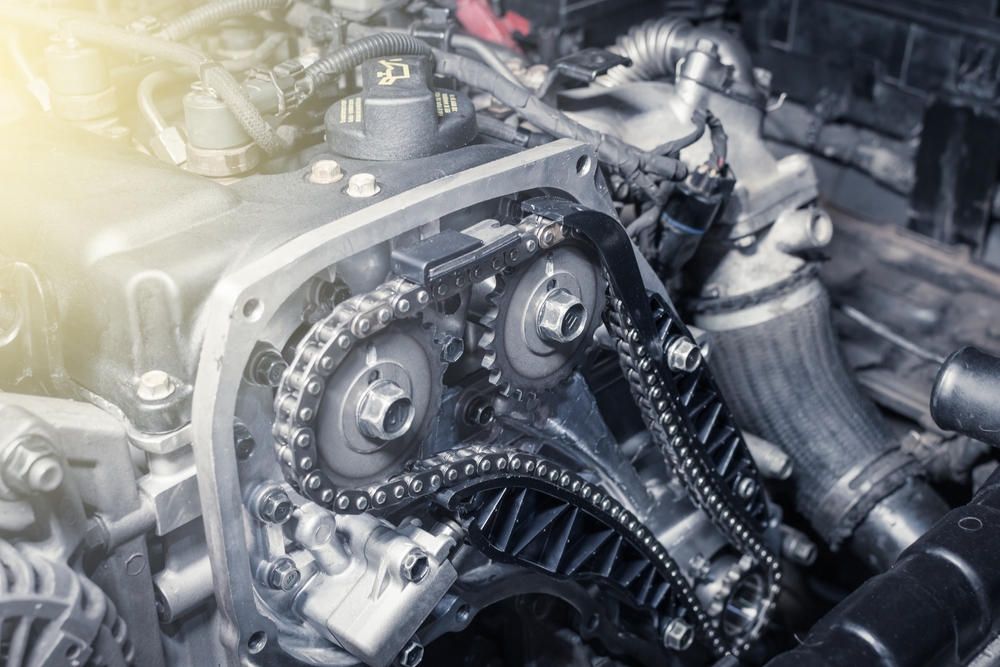
The timing chain is a critical component that synchronizes the engine’s valves and pistons. Replacing it involves dismantling a significant portion of the engine and requires precise timing alignment. A mistake in this process can lead to catastrophic engine damage, such as bent valves or damaged pistons, resulting in a complete engine rebuild. DIY timing chain replacements are risky and often lead to more expensive repairs, making it a job for experienced mechanics.
Repairing or Replacing the Turbocharger
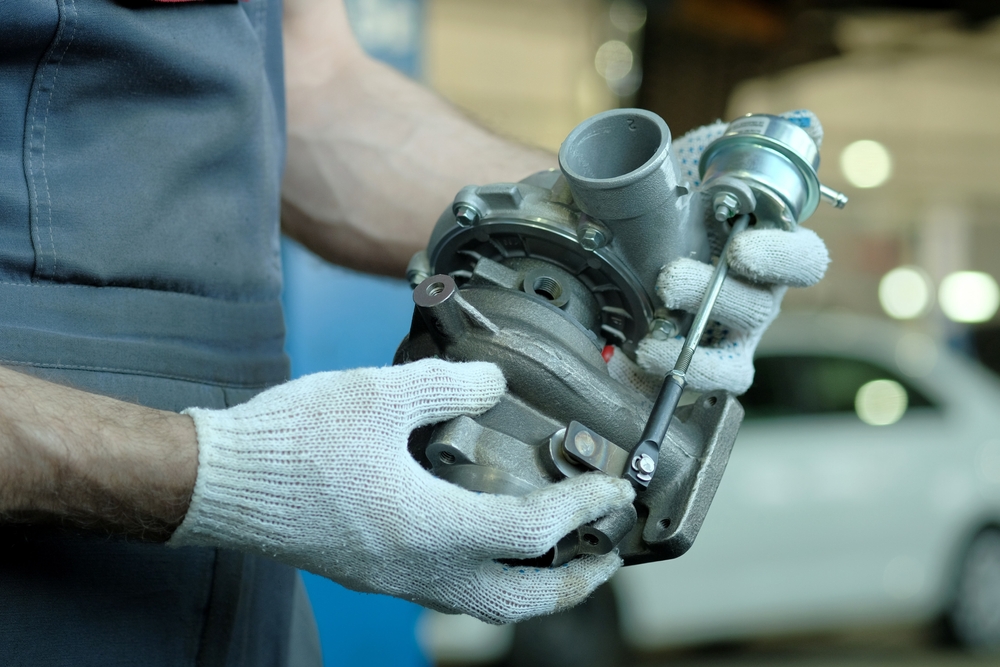
Turbochargers are high-precision components that require exacting installation and handling. DIY repairs or replacements can lead to improper fitment, oil leaks, or even catastrophic failure of the turbocharger, which can cause engine damage. Turbochargers operate at extremely high speeds and temperatures, making them difficult to work on without specialized tools and knowledge. Professionals can ensure that the turbocharger is correctly installed and functioning, preventing costly damage to your engine.
Differential Repair
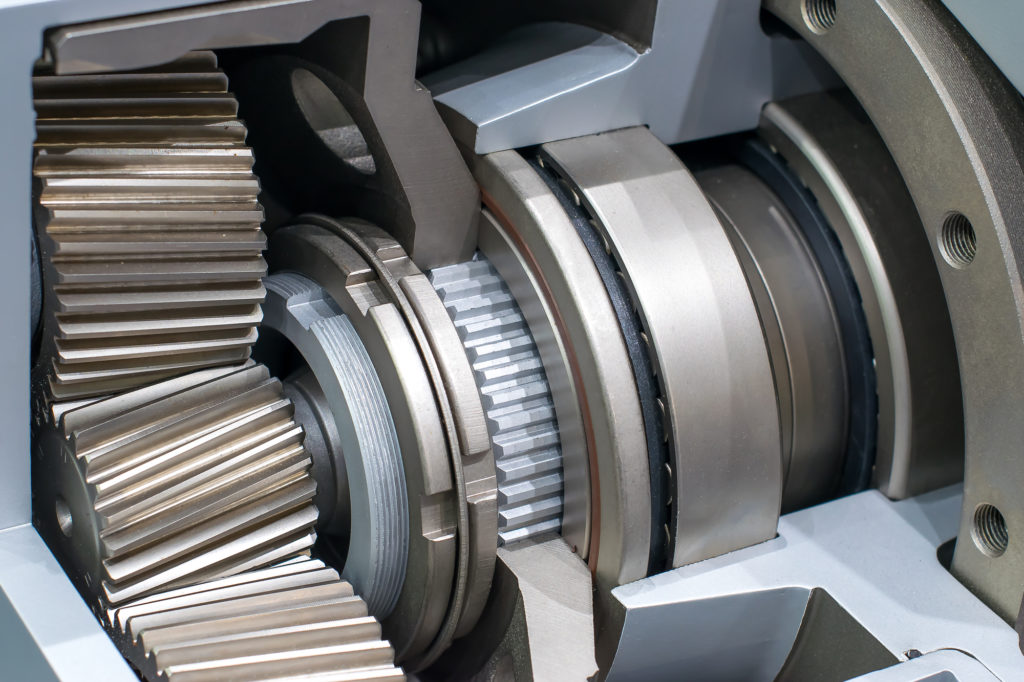
The differential is responsible for distributing power to your vehicle’s wheels and is a complex component that requires precise adjustments. DIY differential repairs can lead to improper gear meshing, leaks, or even complete failure, resulting in costly damage to the drivetrain. These repairs require specialized tools and expertise to ensure the differential operates smoothly and without noise. Professional mechanics can accurately diagnose and repair differential issues, ensuring long-term reliability.
ABS (Anti-lock Braking System) Repairs
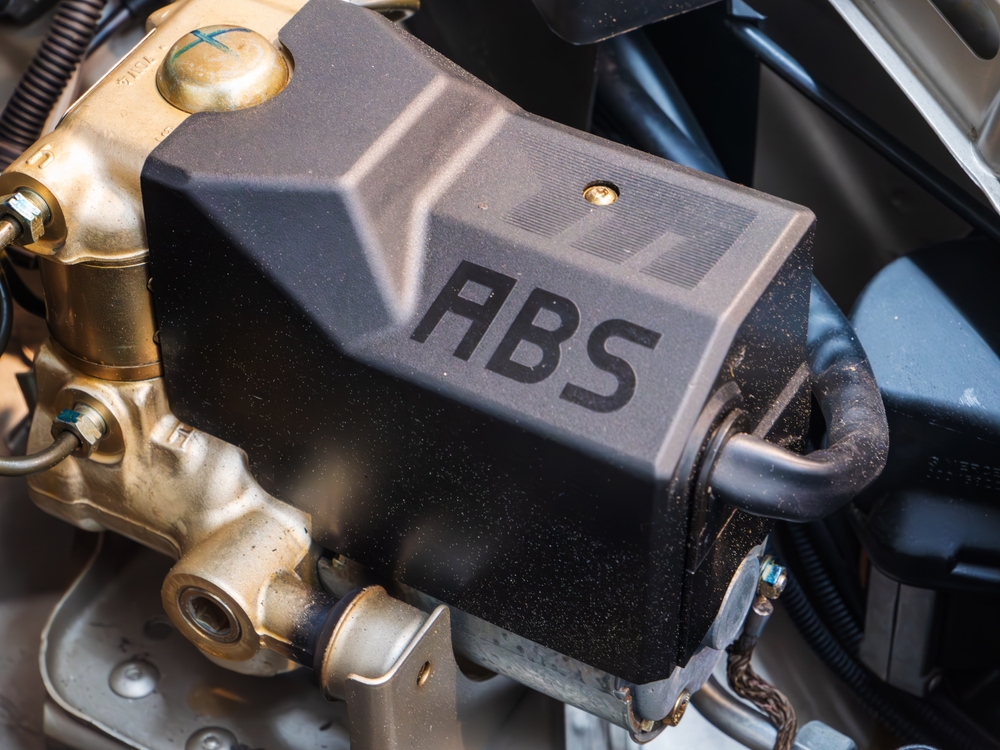
The ABS is a critical safety feature that prevents wheel lockup during braking. DIY repairs to the ABS system can lead to faulty sensors, improper installation, or even complete failure of the system. This can result in reduced braking performance and increased stopping distances, putting you at risk of an accident. Professional mechanics have the diagnostic tools and expertise to safely repair ABS issues, ensuring your brakes function correctly in all conditions.
Replacing the Alternator
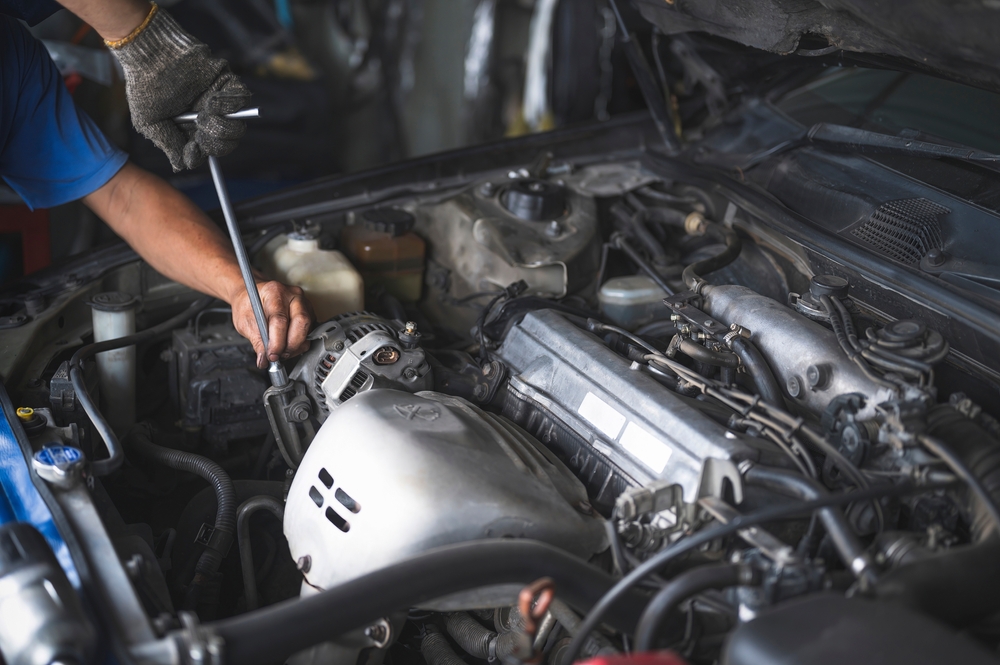
The alternator is responsible for charging your vehicle’s battery and powering electrical systems while the engine is running. Replacing it involves working with the electrical system, and DIY attempts can lead to improper installation, electrical shorts, or damage to the vehicle’s computer systems. A faulty alternator installation can leave you stranded with a dead battery or cause other electrical issues that are expensive to fix. Professionals ensure that the alternator is installed correctly, preventing further complications.
Fixing the Exhaust Manifold
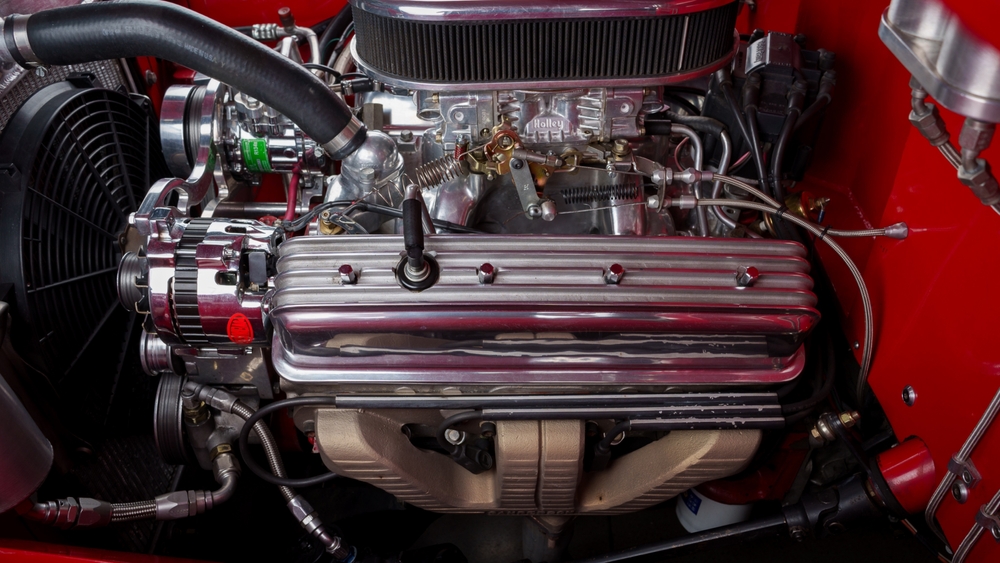
The exhaust manifold channels exhaust gases from the engine to the exhaust system, and fixing it often involves removing rusted bolts and sealing potential leaks. DIY repairs can result in broken bolts, improper sealing, or damage to the manifold itself, leading to exhaust leaks or reduced engine performance. Professionals have the tools and experience to safely remove and replace the manifold, ensuring a proper seal and preventing exhaust leaks that could harm your vehicle’s performance and efficiency.
Battery Terminal Repairs
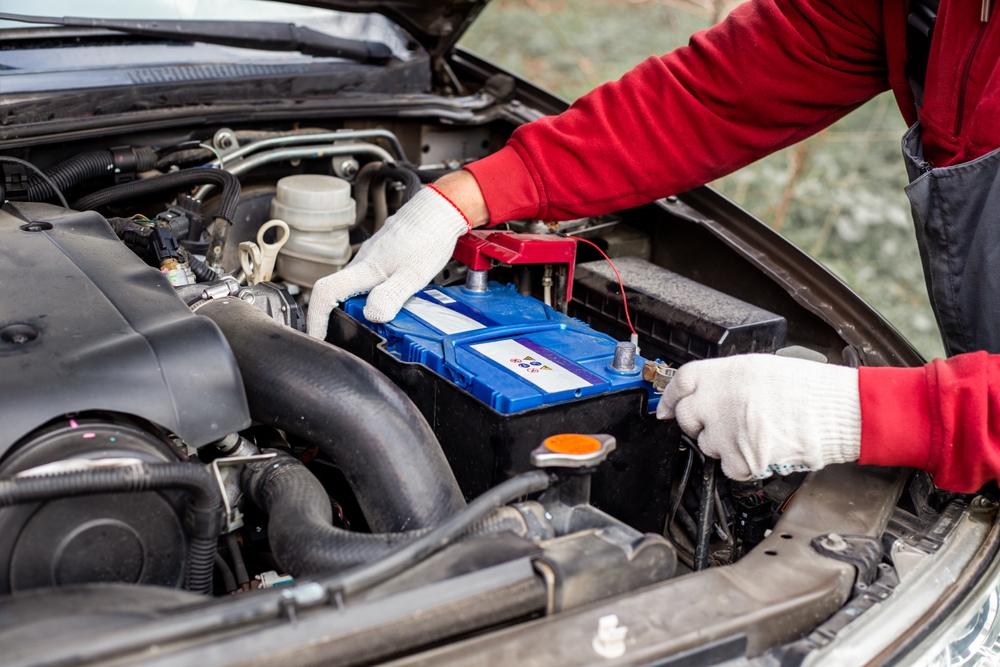
Battery terminals are crucial for ensuring a good electrical connection to your vehicle’s battery. DIY attempts to repair corroded or damaged terminals can result in poor connections, leading to electrical issues, starting problems, or even damage to the vehicle’s electrical system. Incorrect repairs can also cause the battery to drain prematurely or not charge correctly, requiring costly replacements. Professional mechanics can clean and repair battery terminals correctly, ensuring a reliable connection and preventing further electrical issues.
This article originally appeared in MyCarMakesNoise.
More from MyCarMakesNoise
16 Mistakes to Avoid When Parking Your Car

Parking your car might seem like a straightforward task, but even experienced drivers can make mistakes that lead to unnecessary hassles or damage. Whether it’s a small scratch, a ticket, or even a tow, these errors can be costly and frustrating. Read More
15 Prestige Cars Popular Among Wealthy Americans and Their Prices

Wealthy Americans often pick cars that are not only luxurious and fast but also equipped with the latest technology. In this look at some of their top choices, we’ll find out why these cars are favorites and how much they cost. Read More
16 Fun Facts You Didn`t Know About the Jeep Wrangler

The Jeep Wrangler is an icon in the world of off-roading and adventure. Its rugged design and unparalleled performance have made it a favorite among enthusiasts and everyday drivers alike. Read More

